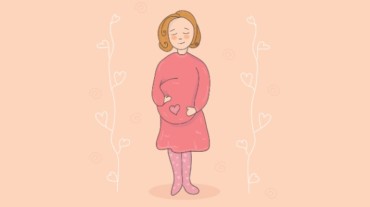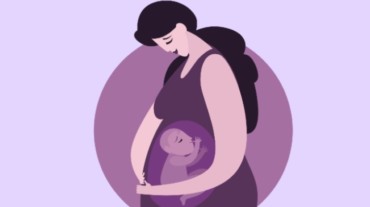
Pregnancy is not a cakewalk–it needs enormous mental and physical strength to deal with constant bodily and emotional changes. Talking about emotions, depressive symptoms, for whatever reason during pregnancy, can have a direct impact to your child’s lower immunity.
We all know how the mother’s physical health has a direct effect on the unborn child. It’s exactly same for your mental health. Your mental health during pregnancy can influence the development of the growing child’s immune system, according to this study.
Pediatric researchers at the University of Alberta examined 1,043 mother and infant pairs in the Child Cohort study. For the research, the mothers were asked to fill out regular questionnaires about their mood during and after their pregnancies.
Anita Kozyrskyj, a pediatric epidemiologist and a leading researcher on gut microbes say:
Our study shows, what happens to the mother during pregnancy could affect the levels and function of the cells that produce immunoglobulin in children.
Immunoglobin plays an important role in the child’s immunity
Stool samples were collected and examined from the babies for the presence of intestinal secretory immunoglobulin A (sIgA)–an antibody that plays a crucial role in immunity.

“This immunoglobulin is really important in the microbiome for developing oral tolerance to environmental antigens,” said lead author Liane Kang, who carried out the research for her MSc and is now studying medicine at the University of Alberta.
How is depressive behaviour in mother’s linked to child’s immunity?
The study found that the mother who reported symptoms of depression during their third trimester, or persistently before and after the birth, were twice as likely to have babies with the lowest levels of immunoglobulin A in their gut. The depressive symptoms did not have to be severe enough for a clinical diagnosis.
Kozyrskyj propounds that the higher levels of the stress hormone–cortisol may be transferred from depressed mothers to their foetuses and further interfere with the production of cells that will make immunoglobulin after birth.
However, there was no link found with postpartum depression. The results held true even when variable factors such as breastfeeding and antibiotic use by the mothers and babies were taken into account.
Select Topics of your interest and let us customize your feed.
PERSONALISE NOWLowered immunity in babies might place them at the risk of respiratory or gastrointestinal infections and asthma and allergies as well. It may also lead to elevated risk for depression, obesity and autoimmune diseases such as diabetes.
So, going for regular mental health checkups along with gynae visits is a good idea to safeguard your child’s immunity along with your mental health.